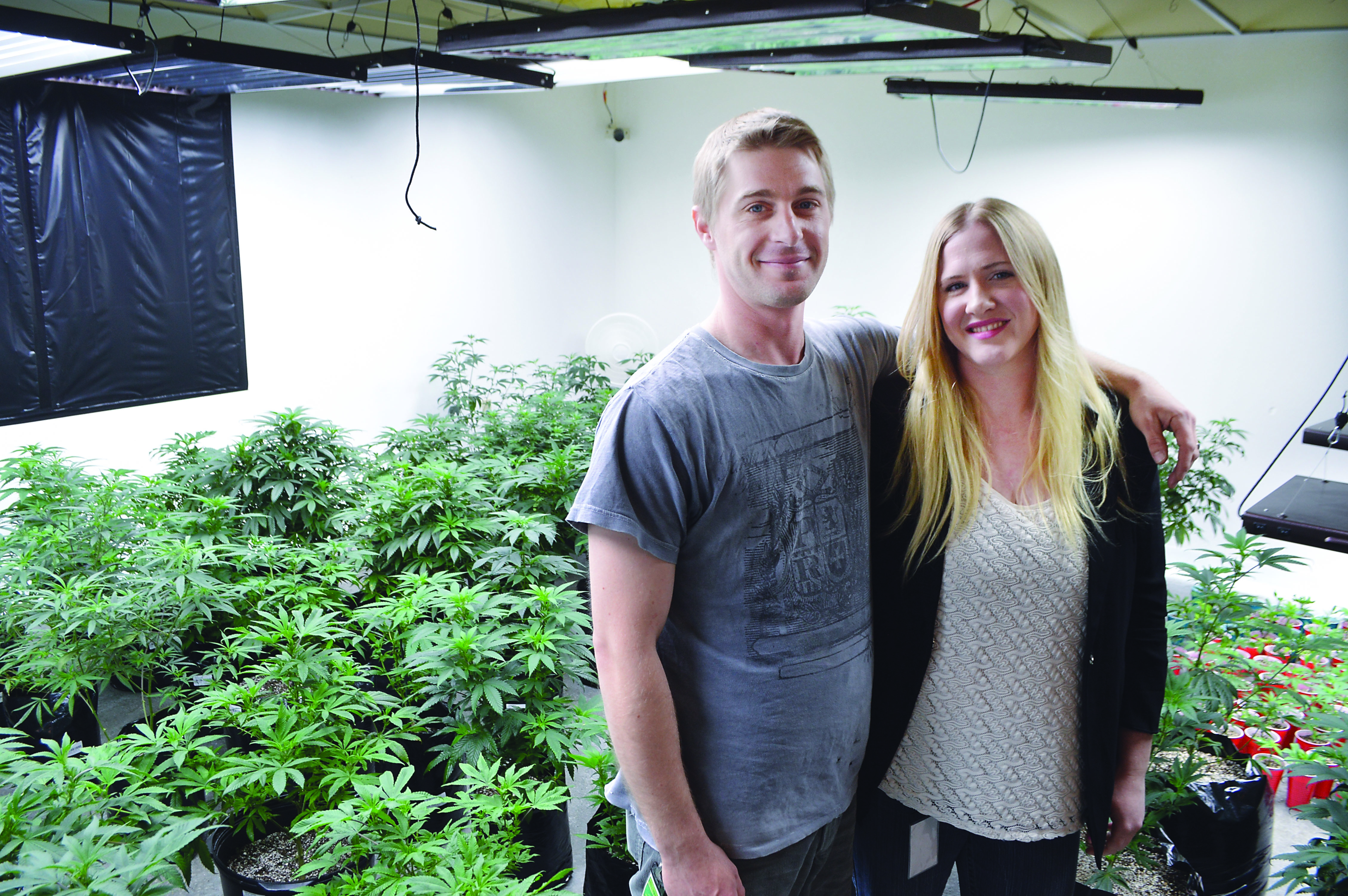PORT ANGELES –– Filmmaker Ryan Herring is growing pot in an effort to boost his production company.
Herring, 35, and his wife, Molly, 31, have been growing marijuana for recreational use since receiving the state’s approval to do so April 8.
The hope, Herring said, is that the marijuana business, Peninsula Cannabis, eventually will produce enough money to expand his Creative Media Productions film business.
“That’s the plan, or I guess I should say that’s the dream,” he said.
Last year, Herring screened a pilot in Port Angeles for “The Olympians,” a series he co-wrote and directed, leading the filming of it on the North Olympic Peninsula.
Unfortunately, the show didn’t get picked up.
“I kind of underestimated how much it takes to take something like that and turn it into an actual series,” he said.
“Independent filmmaking is not a cash cow,” said Molly.
“It’s a passion, or I guess more like an addiction.”
Without the millions of dollars required to launch such a series, and not wanting to surrender his vision to Hollywood executives, Ryan hopes his new business will fund his efforts.
“If you look at what Francis Ford Coppola did in the ’90s, he started his own wine company down in California and said he’s going to use it to fund his own projects, and now he’s done that, him and his daughter,” Ryan said.
“I don’t see any reason this can’t be the same sort of thing.”
The State Liquor Control Board publicly announced Peninsula Cannabis’ license Tuesday.
Growing marijuana in the old United Rentals warehouse by the closed Walmart at 3368 U.S. Highway 101 in east Port Angeles, Peninsula Cannabis is the second marijuana business licensed by the Liquor Control Board on the Peninsula.
Thomas Ash began production at this Tropic Grow operation in a barn at Dungeness on April 1.
The companies are among the 12 growers and 10 processors who have been permitted so far statewide.
The Herrings said the United Rentals site fit their needs perfectly, as it came with such built-in security features as a chain-link barbed-wire fence surrounding the warehouse.
Not only do they hope marijuana revenues will fund feature productions, but the Herrings also plan to produce a Web series about their operation called Pen Canna TV.
“It’s a chance to document the start of this industry,” Ryan Herring said.
“As a filmmaker, I guess I feel I owe that to history.”
As for “The Olympians,” he has entered the pilot in some contests and is reworking the show to be presented as a series of short episodes.
“We’re trying to rebrand it as a Web series,” he said.
“Hopefully, that will be the thing that drives it to a point that somebody sees it and sees the story and decides to pick it up.”
The Tier 2 producer license allows the Herrings to grow up to 6,334 square feet of plants.
Right now, 13 strains are growing. They have 52 varieties in a seed bank that they plan to eventually grow.
Many of those are bred from seeds from marijuana that grows wild in tropical regions, they said.
By the first harvest in July, the Herrings expect to have as many as three dozen strains ready to hit the shelves.
The state will hold lotteries late this month to award licenses for retail marijuana stores, with results posted to the state website at www.liq.wa.gov on May 2 and the first sales expected in July.
Ten stores will be allowed on the Peninsula. Clallam County has been allotted six — two in Port Angeles, one in Sequim and three anywhere else — while Jefferson County has been allowed four — one in Port Townsend and three anywhere else.
Peninsula Cannabis’ crop comes from the medical marijuana garden the Herrings grew for Molly’s medical marijuana prescription.
The Herrings also plan to produce a “Flashback series” of marijuana varieties that were popular in the 1960s and ’70s to appeal to what they see as a likely market in the baby boom generation.
“The thought is that would provide some name recognition for boomers who can pick up a pack of Maui Waui or Thai Stick and say, ‘I remember that from when I was a kid,’” Ryan Herring said.
There is no limit on the number of growers or processors that will be licensed, though statewide production has been capped.
Clallam County still has 48 producer, 28 processor and 33 retail applicants pending. Jefferson County has 25 producer, 27 processor and 17 retail applications pending.
________
Sequim-Dungeness Valley Editor Joe Smillie can be reached at 360-681-2390, ext. 5052, or at jsmillie@peninsuladailynews.com.


